Thankfully, most of these games have already received a lot of praise (and awards) from people far more important to our medium than I, but still it never hurts to throw your own thoughts into a discussion, and that's what this post aims to do. Please note that I have only included games that I have actually played, and furthermore have played a great deal of. I'm sure I missed a few games this year that would probably be great candidates for this list (Far Cry 3 and Slender come to mind). Also, this turned out to be a fairly long post so a bathroom break, some coffee (or beer) and a snack is recommended. I've blabbed on long enough, so without further ado here's My Top Ten Games of 2012.
From the moment Fez was first announced it seemed it was destined to be the latest indie darlin'. Fez is a wonderful mash-up of old school platforming/pixel graphics, complete originality and dedication from its developer; Fez manages to be both fresh and familiar. In the game you play as Gomez, a cute little pixelized something-or-other who lives in a two dimensional world where learning to platform is akin to learning to walk. One day Gomez witnesses something miraculous: a golden, three dimensional object called the Hexahedron. Gomez then finds (or is given) a magical fez hat that allows him to rotate his world and traverse sides of it he never knew existed. Once Gomez has this power he begins to rotate the world around him, changing perspectives in an instant.
However, something goes wrong (as it always does when you begin to play with space or time); as Gomez rotates the world faster and faster, the golden Hexahedron is ripped apart and the game crashes. Okay, so it doesn't really crash, but Polytron Corporation (that would be Fez's developer) did a good job of breaking the fourth wall here. The game "restarts" and we are shown the same opening sequence we saw the first time; only now, Gomez has the fez, and can rotate the world at will. Turns out though, the now shattered Hexahedron holds space and time together, and without it the universe will soon be ripped apart. Using his new found power, Gomez embarks on a journey across his world to find all 32 pieces of the Hexahedron and save the universe: "no pressure."
To call Fez an ambitious game is an understatement. Polytron Corporation and the game's creator/director Phil Fish have poured their hearts and their souls into this game, and it most definitely shows. Fez was announced in July of 2007, with a slated release of Q1 2010. However, Fez soon became one of those games plagued by push-backs and some started to doubt the game would ever be released. To the glee of many (myself included) Fez was finally released this past April on XBLA. Barring a few glitches, save-deleting patches, and nearly hostile negotiations with Microsoft, Fez turned out to be a true stand out not only for indie games, but for the medium as a whole. It is also one of the most original, complex, cryptic, and enjoyable experiences I've had in a while. Fez not only forces you to think outside the box; it makes you change your perspective of said box entirely.
The Unfinished Swan follows the story of Monroe, a young boy living in an orphanage after his mother's death. His mother was an avid painter but had the quirk of never finishing a single painting. After her death, Monroe could only take one painting with him to the orphanage. He chose his mother's favorite: an unfinished painting of a swan. One night, he is transported into another world where everything is all white. Monroe quickly finds that he has the ability to throw an infinite supply of paint, which he uses to mark the layout of the world around him. As Monroe continues to explore this magical world, he uncovers the story of a kind, but odd, king who has the ability to create the world as he sees fit. Monroe continues to explore this surrealistic world, all the while chasing a giant, unfinished swan.
I'll just come clean and say I'm a sucker for whimsical, artistic games that manage to capture that sense of child-like wonder, so I suppose I went into The Unfinished Swan with the complete bias of already liking the game. However, I can honestly say that, setting my biases aside, The Unfinished Swan is one of the most beautiful games I have played in recent memory. My one major concern for this game was that throwing paint to make the world visible would become tiresome and tedious after a while. Thankfully though this mechanic is only the mainstay for the first level. As you progress through the game and learn more of the story, everything gradually becomes more complete. Objects soon cast shadows so that, while still white, you can traverse the world without having to cover it in paint first. In between worlds there is a cartoony storybook section that coveys Monroe's transition between levels. These sections are very cute and add a great deal to the overall tone of the game.
One last thing I'd like to point out is that while this game is centered around Monroe's deceased mother, it is defiantly not a sad story: bittersweet in a few places, sure, but not sad. Of all the games on this list, The Unfinished Swan has probably been the most joyful to play. The game is very light-hearted, friendly, and easy enough for anyone, non gamers included, to pick up and play. Developer Giant Sparrow certainly understands child-like wonder and, more importantly, how to convey that feeling through the gameplay and to the player.
Borderlands 2 was certainly one of the most anticipated games of 2012. After the success of its predecessor, Gearbox Software promised it would be bigger and better in every respect, and they delivered: oh, boy did they deliver. While the first Borderlands was great fun, it had the issue of becoming very samey after a while. I know it was the developer's intention to create a barren wasteland of a world, but that still didn't make the fact that 90% of the levels were rocky and sandy any more appealing. Were it not for the constant stream of slightly-better-than-what-I-had weaponry, I probably would have lost interest somewhere around New Haven. It's clear to see, however, that Gearbox acknowledged this downside of the first game and chose to make the scenery of Pandora much more diverse and easier on the eyes.
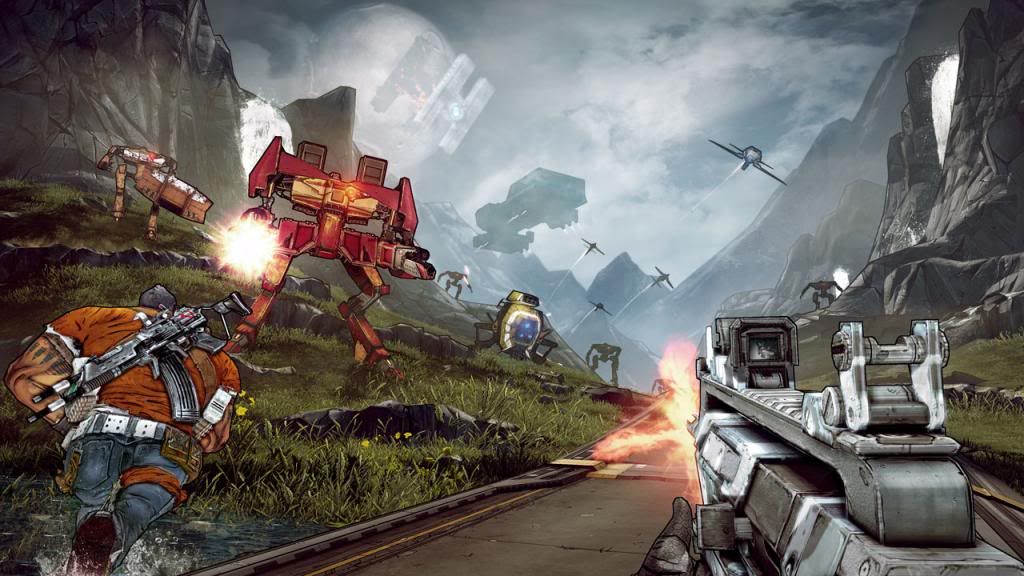 |
| Holy shit, grass! |
Though Borderlands 2 is much more aesthetically pleasing than its predecessor, this isn't the only thing that's "bigger and better". For one, Pandora feels like a much bigger, and deadlier, place. The idea of having the Hyperion corporation show up and take over the planet added some much needed conflict that went beyond the protagonists' journey to find the vault. It was also a brilliant idea to have the four playable characters from the first game act as a way that simultaneously moves the plot along and makes your actions from the first game feel more substantial.
Speaking of the plot, Gearbox really stepped up their game for this one. To be fair, the writing in the first game was by no means bad. It had a few "Holy Shit" moments, and some witty banter between the characters but these were mostly shallow attempts at getting the player to chuckle. Conversely, Borderlands 2 has genuine moments of hilarity strewn throughout, to the point where I had to momentarily stop playing because I was laughing so hard. A lot of these jokes are very tongue-in-cheek, such as Scooter's line about Crazy Earl eating an entire car with a fork, and other times they can be down right crude, scatological-type, jokes. In my opinion, this low brow comedy adds a great deal to the world by making the few truly witty lines shine all the brighter. Besides, admit it, everybody likes a good old fashioned poop joke from time to time.
Gameplay wise, Borderlands 2 plays just like the first game, which didn't need any work in my opinion. Like I said before in my article on Critique vs. Review, Borderlands 2 is an RPG first, and an FPS second. Because of this, the leveling system, skill trees, guns and upgrades go very far in keeping you engaged and entertained, as well as giving you a ton of content for your gaming pleasure. Borderlands 2 is not only the most fun I've had shooting things this year, it's also been one of the funniest, and surprisingly deep. Fans of FPS's and RPG's would be hard pressed to find a better marriage of the two genres than Borderlands 2. Also, Handsome Jack is one of the best villains of all time. Just saying.
Lone Survivor is a game that puts you in the role of "The Survivor" who is, as you might have guessed, the only one to his knowledge to have survived a catastrophe involving unknown humanoid creatures (zombies, I guess). The Survivor lives in an abandoned apartment in a complex that is infested with the unknown creatures. The prologue of the story tells us that he has been held up in his apartment for an unknown length of time, but now he is out of food and must traverse the dark halls of the apartment complex in search of supplies, as well as a way out. Throughout this journey the player finds subtle clues that hint at The Survivor's true identity, and learn a great deal about his decaying mental health through his inner dialogue and dream sequences.
The entirety of the game is played in a sidescrolling 2D perspective, which already makes Lone Survivor stand out amongst it's survival horror brethren. Then there is the sense of tension and urgency brought on by the limited battery life for your flashlight (which is a necessity because this game is very dark) and the need to eat and sleep regularly. Most of the times the monsters roaming the halls aren't even that frightening in comparison to the ever looming threat of running out of batteries in a dark area, starving, or collapsing from exhaustion when you're who knows how far away from the safety of your apartment. This was a brilliant ploy by the game's creator, Jasper Byrne. Byrne clearly understands that once you visually observe the source of your fears, it quickly loses its effect. Running out of light, starving, or collapsing in exhaustion are all fears that are abstract, and can never be seen. They're also inescapable. Finding batteries, food, or taking a nap are all temporary things and before you know it, the fears that these three bring about are back and more terrifying than before. To this, the monsters are merely obstacles that stand in your way as you try to delay these fears; the fears in your own mind.
I'm going to go on record here and say that any game that can make me care about rectangles is a work of sheer genius and a brilliant display of conveying narrative through game mechanics. Thomas Was Alone is a puzzle-platformer centered around several rectangular characters working together to reach the end of a level. Some of these characters can jump higher than others, but are too big to fit in certain places. Others are smaller, but need the assistance of others to reach high places. Some characters have special properties such as the ability to float or be used as a trampoline. What makes these characters so endearing though is not their abilities, but their personalities. Yes, I did just say that a group of varying sized rectangles and individual personalities: and also names.
Throughout the game the story is delivered through each character's inner thoughts being read aloud in a novelistic style by the narrator. Though the game is named Thomas Was Alone, each character gets quite a bit of time to have their thoughts conveyed. What's spectacular though is just how quickly you begin to make a connection with the characters, even though they are just rectangles. The brilliance lies in how the mechanics of the game and the actions you perform have a way of showing you each character's personality, rather than simply having the narrator dictate it to you. For example, Thomas (the short, red rectangle) is very inquisitive. We are told this through the narration first, but as the game progresses we begin to see this side of Thomas because his size and jumping ability make him the ideal candidate of the group to scout ahead and learn the layout of the level. Then, after he has accomplished this goal, his role changes to that of one that observes and admires the talents of his friends: as well as needing their help to reach the end of the level. Thomas Was Alone proves that you don't need complex graphics, or a multimillion dollar budget to convey a message and cause players to become invested in your characters.
To describe to you just how much Katawa Shoujo has accomplished is very tricky. On the surface this seems like a perverse game that should be kept in the shadows rather than be number 5 on a list of best games. Upon its release, I was pleased to see that quite a few well known reviewers defended this game and described it for what it is rather that what it appears. However, for every person defending and praising this game's message, there seemed to be 30 others demonizing it.
The game centers around Hisao Nakai who is an ordinary high school student. One day a girl from his school confesses her love to him. At this point he gets really excited and his heart starts to beat very fast. Too fast, it would seem, as in the next instance Hisao collapses and wakes up in a hospital bed. The doctors tell him that he has a rare heart condition that makes him very prone to having a heart attack brought on by even small amounts of stress. Because of this Hisao's parents and doctor agree that it would be best if he transferred to a new school, one that is specially suited for students with disabilities. In Hisao's eyes, his entire life is turned upside down, and he doesn't feel as though he should be going to a school with "different" students. After awhile though he begins to make new friends that help him not only come to terms with his condition, but also show him that he can still enjoy his life. Some of his new friends include: Emi, a girl who walks with prosthetic legs; Hanako, who has severe burn scars on the right side of her body; Lilly, who is blind; Shizune, who is deaf; and Rin, who has no arms. It is through the player's choices which of these girls Hisao becomes closer to, and eventually falls in love with.
It's striking to me that a game like this actually ended up being made. Katawa Shoujo was developed over the course of 5 years by a group of amateur developers from the internet's infamous 4chan, who dubbed themselves Four Leaf Studios. To begin with, dating sims are almost always given a bad rap amongst video games for their inclusion of sexual content, and are often labeled as nothing more than mild pornography at best. And to be fair, most of the time this is true. Before you ask, yes, Katawa Shoujo does include sex scenes. Unlike most games in its genre though, these are all very tactfully done, and are only a small portion of the game that serves a way to strengthen the bond between characters and add weight to the story. Though, I do think it was a good idea for the developers to allow you to turn off the sex scenes, just in case you wanted to avoid them. It's a shame to see that our society isn't grown up enough to see the difference between a scene that is pornographic and a scene that is sexual.
By choosing to include these scenes in Katawa Shoujo, Four Leaf Studios brought up a good point. Why is it considered taboo to be attracted to someone with disabilities? Aren't people with deformities entitled to enjoying love and sex the same as the rest of us? It seems as though this stigma is simply another way in which society isolates these individuals from everyone else, and, while I can't be sure, I think most disabled people would agree with me (by the way, we really need to find a better term than "disabled", it sounds very condescending). The controversy surrounding Katawa Shoujo is amplified, obviously, by the literal translation of the title, which means "crippled girls" in English; then there's whole ordeal with the crazy guy who got hammered and thought it would be a good idea to have his friend cut his arms off so he could be more like Rin. After all of that it's easy to see why so many people demonize what in reality is a very sincere, and well designed story that sends the message that people with disabilities are just that, people.
All to often people with disabilities are portrayed as weakened individuals who need to be protected from the world; this could be one of the reasons there is a social stigma to being attracted to someone who has a deformity, or a disability. Katawa Shoujo manages to avoid these stereotypes, and introduce us to characters that are not defined by their disability; that are people with something to overcome in life: just like the rest of us and the fact that the story is (for the most part) very light-hearted and fun makes the characters all the more believable and special. Combine that with the fact that this is the most polished visual novel/dating sim I've ever played and you've got yourself a real winner. Oh, and did I mention that the game is free; because it is. Not bad for a small group of 4chan denizens.
Speaking of polish, I'll be damned if Dishonored isn't one of the most polished games I have ever played. In Dishonored you play as Corvo, bodyguard to the empress of Dunwall who has just recently returned from a sea fairing voyage to lands beyond. Dunwall, a city known for its dependance on whale oil and whale oil accessories, is on its last leg with a plague wiping out most of its citizens, and rats and weepers (zombies basically) killing most of the people who remain. During his reunion with the empress a group of assassins attack, killing her majesty and kidnapping her daughter Emily. Corvo is then wrongly accused of the crime and thrown in prison: though he won't be there for long. Soon a group of people outside of the prison hatch a plan to free him so they can utilize his skills. Before he can even get a full night's sleep though, Corvo is visited by a mysterious man called "The Outsider" who grants him new magic-like abilities. What follows is a plot to overthrow the corrupt government that formed in the wake of the empresses' death, as well as finding Lady Emily and making her the new empress.
Dishonored is one of those few games that comes along that blends action and stealth based gameplay while making both equally fun. The game also has a lot going for it in terms of choice. It's true that many games say they give you choice, but usually this is incredibly shallow and not very satisfying. In terms of the story, Dishonored fails at choice by leaving you with a very black and white ending that is the usual cliché "good" ending and "bad" ending, which it disguises as "low chaos" and "high chaos", respectively. To its credit though, the game's criteria for what is a good action and what is a bad action can be very ambiguous (save for killing someone, as this is always considered a bad action) with some non-lethal ways of disposing of a target seeming like a fate worse than death. Where Dishonored really shines in terms of choice lies in the layout of its levels. There is almost always several different methods of completing a task, and many different paths to traverse. Off the top of my head, I remember one area where the object was to get inside of a large building swarming with guards. My paths to achieve this goal were numerous: I could sneak to the back door and let myself in; Kill off all of the guards (stealthily or not) and enter through the front door; use my magic to possess a guard and walk right in, or possess a rat and enter through the ventilation system; use my magic to climb to the second floor and enter an open window; work my way through the sewer and enter the building from underneath; or any variation/combination of the aforementioned.
The story in Dishonored isn't anything earthshaking, but it is well written and gets the job done. There are a few times at The Hounds Pit Pub (the "hub world" of the game) where the characters get a few good moments of interaction with each other that don't directly impact the story. It's also interesting to see how different the characters act towards you based on the actions you choose on missions. Then there's the interaction between Corvo and Emily that explores the father-daughter dynamic quite well, though Corvo is not really her father. Emily's personality changes quite drastically as well by mirroring Corvo's actions. Dishonored is also the first game in recent memory that caused me to start a new file the moment the credits were finished rolling. Even as I write this, I feel an itch to stop what I'm doing and play the game again, and if that doesn't speak to Dishonored's quality, I don't know what will. Plus it's set in a steampunk (whalepunk?) world that is very reminiscent of Victorian era London, and I'm a sucker for that sort of thing.
Okay, still with me? We're almost there. (ahem) I'm going to start off by saying that Spec Ops: The Line is the least fun game on this list. When it comes right down to it, this game can be very dull, repetitive, and downright terrible. If all of this wasn't a completely intentional choice by developer Yager, I'd write this game off as a piece of shit faster than a blue hedgehog on meth. The whole point of Spec Ops: The Line is to convey a message to the player. Basically, the developers are criticizing games like Call of Duty and Battlefield for glorifying war by making a military shooter whose protagonist slowly morphs from a by-the-books soldier, to a profanity shouting stereotype of an online gamer, and eventually something much more sinister. The game's mechanics add to this effect by feeling very stiff and outdated in comparison to other games in it's genre. This causes the player to feel as lifeless and drained as the protagonist, while still managing to keep them engrossed in the world. After a while, shooting an enemy becomes so weightless and meaningless that it begins to feel as though you are simply "going through the motions"; it is at this state that the player becomes fully receptive to what Spec Ops: The Line is all about and it's this very feeling that ends up motivating the player to see things through to the end.
I went into Spec Ops: The Line as I imagine most people did. I expected it to be just another mediocre shooter trying to capitalize on the success of COD; had I played only the first hour or so, I would have been right. Yager was smart in this regard. They want you to go in with a particular mindset so they can weave the protagonist's mind with your own, only to later sever those ties as the story is pieced together. Choices in this game are much less overt insofar as they are never explicitly stated and it is up to the player to determine through trial and error what "metachoices" are available, if any.
Spec Ops: The Line's plot centers a squad of three US special operatives tasked with entering the now sandstorm-ravaged city of Dubai to rescue any survivors, as well as determine the fate of 33rd Infantry colonel John Konrad and his men. Upon arrival the special operatives are attacked by the local populace and are forced to fight back using deadly force. It is later revealed that the locals are simply defending themselves against members of the 33rd who have now gone rogue; and I won't say anymore about the plot for fear of spoiling it.
Spec Ops: The Line is certainly the surprise gem of the year. I did not bother playing it until the literally the night before I began formulating this list just to see what all the fuss was about: which I now regret. What I thought would be a mediocre, mindless shooter, turned out to be one of the deepest, most genuine explorations of the human condition I have ever experienced. This game manages to blur the lines between player and character in a way few games can. The subject matter and plot points make the game very dark and chilling so as to explore the nature of post traumatic stress disorder and the grey areas of war. A true diamond in the rough if ever there was one.
Of all the games on this list, That Game Company's Journey is the one I was most excited for. The plot of the game is that, just as the title says, you're on a journey to reach a mountain that ever lies off in the distance. Who you are and why you're trying to reach this mountain is left open to interpretation. The character you play as is an unnamed humanoid creature with a magical scarf that allows you to float through the air for increasingly longer periods of time. Along the way you may run into other players, via the online connectivity, in which you may choose to to continue your journey with, or avoid and continue alone. Both are valid options in my opinion, and they serve to make the game feel different depending on your ally or lack thereof. The first time I played Journey, I turned of my PS3's connection to the internet so that I could play alone. The result was a very lonely, thought provoking, and soul-searching-esque experience that by the end brought tears to my eyes simply due to an overwhelming rush of beauty and wonder. For my second playthrough I turned the internet back on and quickly formed a companionship with another player, who ended up staying with me through most of the game. Even though we could only communicate through a series of bleeps and bloops, I grew quite attached to this player and was actually saddened when we lost each other at the very end.
Simply calling Journey an emotional experience doesn't do it justice. Like I said before, it's quite amazing just how much of bond you make with some stranger even though you can't communicate directly to them. Admittedly, when I first heard of this feature I was a little skeptical. Anybody who has played online has had a bad experience due to the actions of another player, and I was worried that Journey would be littered with assholes that just want to mess with others. To my pleasant surprise however, every player I've interacted with in my numerous playthroughs have been very into the experience and I like to think that they developed as strong a connection with me as I did with them; it helps that they can only communicate through movements and bleeps and bloops: this keeps the asshole tendencies at bay. One player actually ended up way ahead of me in the final level and I was worried I had lost them, but once I reached the summit of the mountain, I was greeted with the sight of the other player's character sitting there patiently waiting for me to catch up.
Journey isn't just about briefly forming an emotional connection with a complete stranger, it's about beauty, wonder, and creating a fantasy world like no other. Everything about this game screams artistic originality: from the way the wind moves the sand as if it were an ocean; to the way light reflects and sparkles at your character's feet; to the very game mechanics themselves weaving a tale that feels much longer and more epic that it actually is. All of this and more is meshed perfectly together with the award winning music that, even alone, can give you chills and put tears in your eyes. Journey is such a fantastic game, that I honestly argued back and forth with myself for a week as to whether it should be number one on this list or not, and for a while it was number one. Choosing between this and the next game on this list was a very tough choice for me to make, and really number one and number two are practically interchangeable in terms of quality and my personal love.
Yep, just like pretty much every other "best games of 2012" list/awards show/whatever, my pick for the best game of 2012 is Telltale's The Walking Dead. My picks for game of the year rarely line up with the rest of the industry, but this year there seems to be a general consensus that this adaptation of the best selling graphic novel of the same name is truly something special.
The plot of The Walking Dead surrounds the protagonist Lee Everett, a former history professor at the University of Georgia. The game opens with Lee riding in the back of a police car on his way to jail for reasons that aren't made clear until later. During the trip, the police officer isn't paying attention while driving and hits someone, running the car off the road and into a nearby forest. Lee wakes up and sees the police officer is lying outside of the vehicle. As Lee approaches he can see that the man is dead, but before Lee can organize his thoughts, the officer's corpse begins to attack. Lee's quick thinking saves his life from the living-corpse, but soon more walking corpses appear and chase Lee into a small neighborhood. Lee desperately searches the first house he comes upon for someone that can help him, and in the process becomes acquainted with a young girl named Clementine. The two team up and agree to help each other survive, and Lee promises to help Clementine find her parents.
The Walking Dead is certainly a pinnacle of an emotionally charged experience that manage to become something much more meaningful than it first appears to be. The gameplay of The Walking Dead is akin to old school point-and-click adventure games with the added benifit of being able to move around relatively freely. You have various dialouge options which you can use when in conversation, but much of your time will be spent searching for various items that might be useful to progressing the story.
However, the true "meat" of what makes The Walking Dead such a good game lies in what it has accomplished. Few games have a story of this caliber, and even fewer have one that is populated by interesting, well written characters that mesh and clash better than those found in most Oscar nominated films. The fact that not a single character in this game is a cliché or stereotype speaks volumes to Telltale's writing staff. The game's protagonist, Lee Everett, is one of the best African American characters of all time, in any media, and Clementine is right up their for one of the best child characters. Much like Dishonored, one of the themes that The Walking Dead explores is that of the father-daughter dynamic. Again, Lee is not Clementine's real father, but it's easy to see this type of relationship develop and grow stronger as the game progresses.
Another aspect that makes The Walking Dead such a landmark for the video game industry is its use of choice. Like I said before, choice systems, especially those of the moral variety, tend to be very shallow, completely black and white, and usually don't end up impacting the story very much. However, the choices you are forced to make while playing The Walking Dead are true tough decisions that almost always impact how the rest of the game is played. Several times you and your group get attacked by zombies and two characters will be attacked simultaneously; you have mere seconds to decide which character to save, and which character to let die. It's tough decisions like these, that are neither good nor bad, that make up what The Walking Dead is all about. This is a game that truly explores the human condition and works it's way into your mind, forcing you to think about and make the tough decisions you hoped you'd never even have to consider. This is a true testament to what video games can accomplish and a true masterpiece of an artistic medium, and that's why The Walking Dead is my pick for 2012's game of the year.


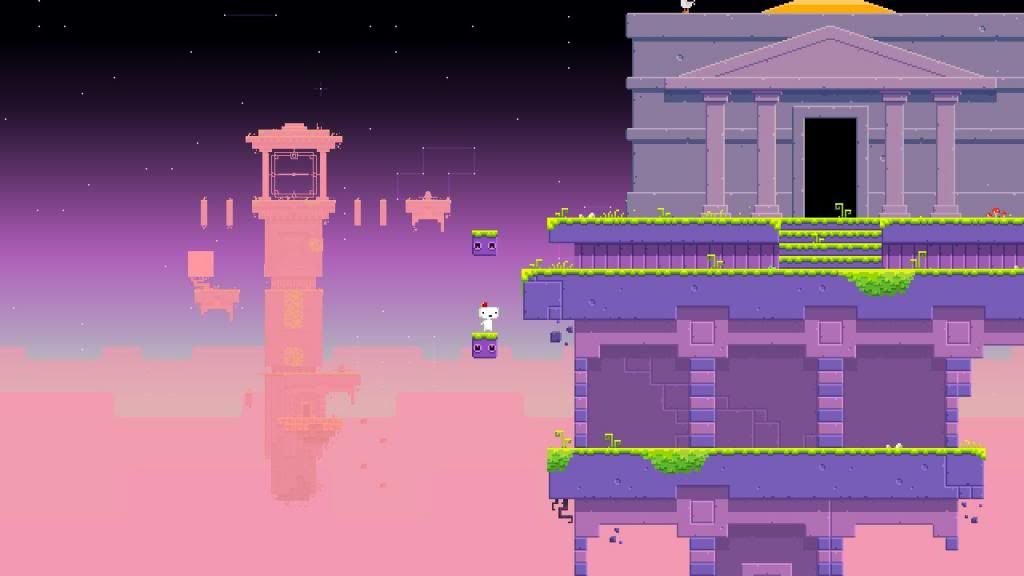

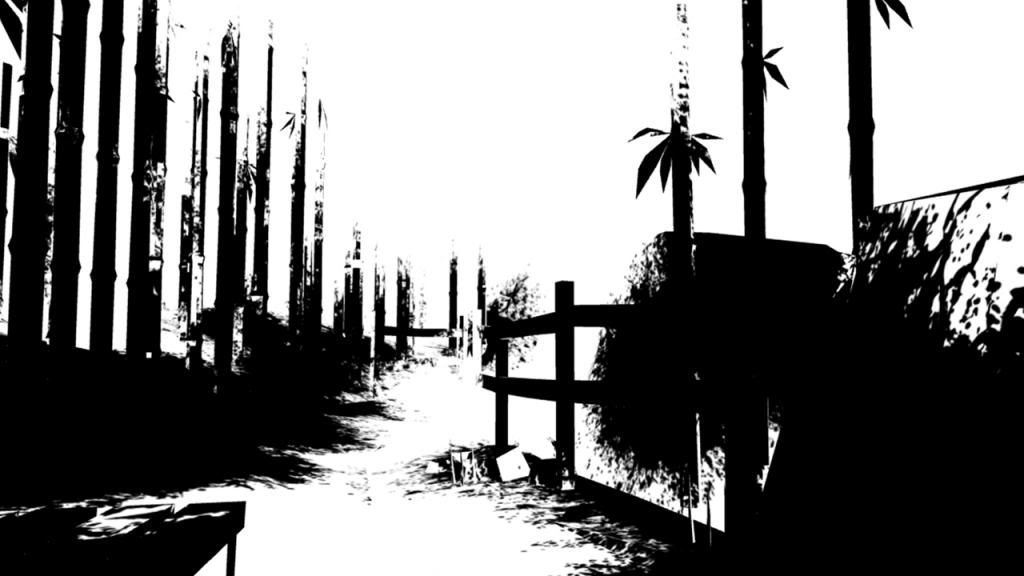


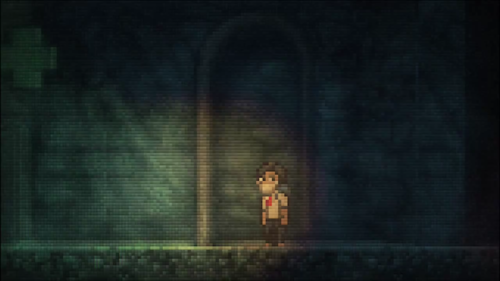

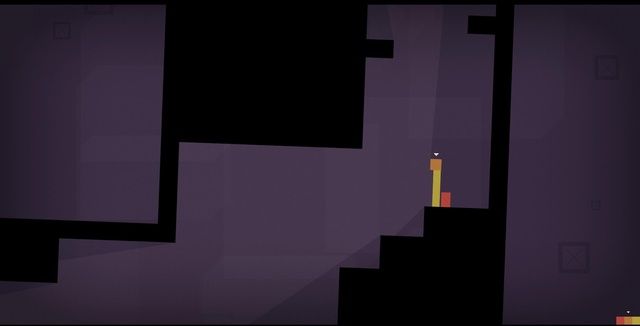

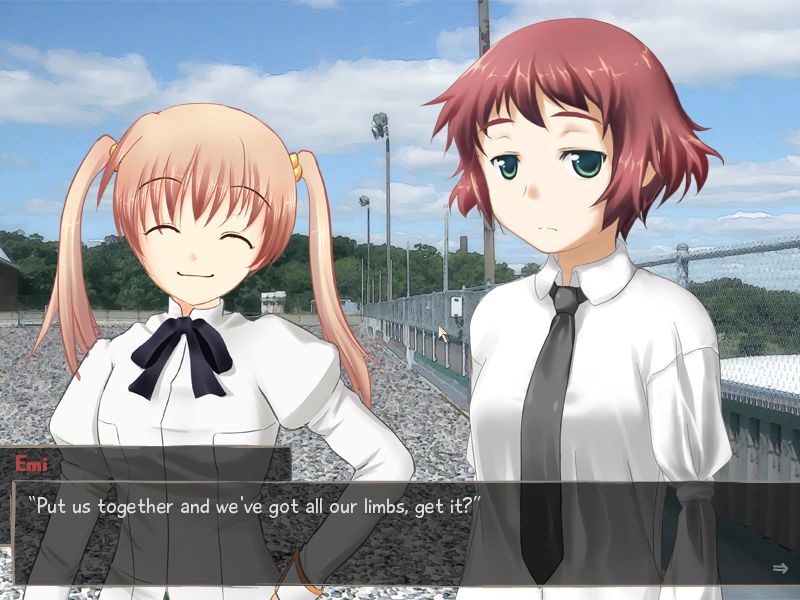

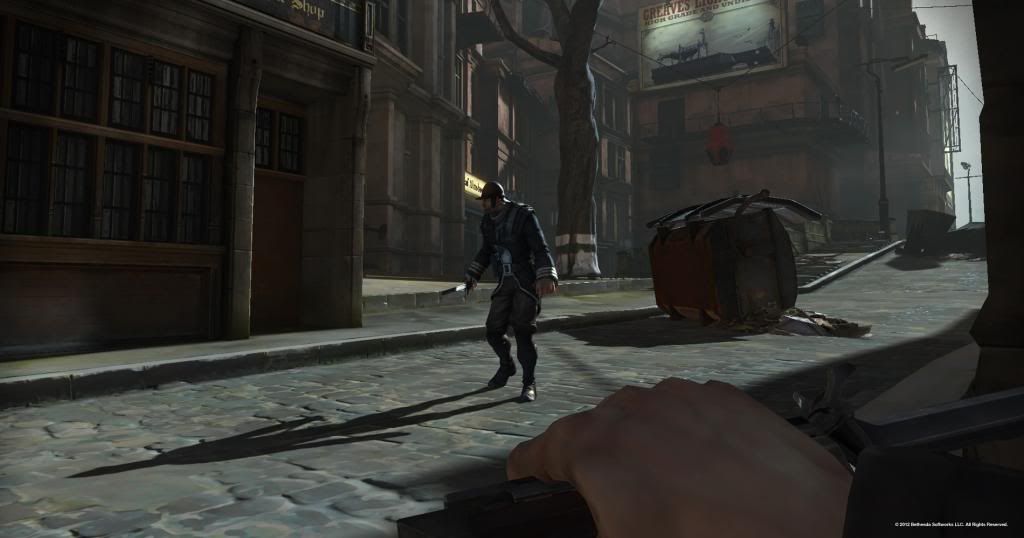

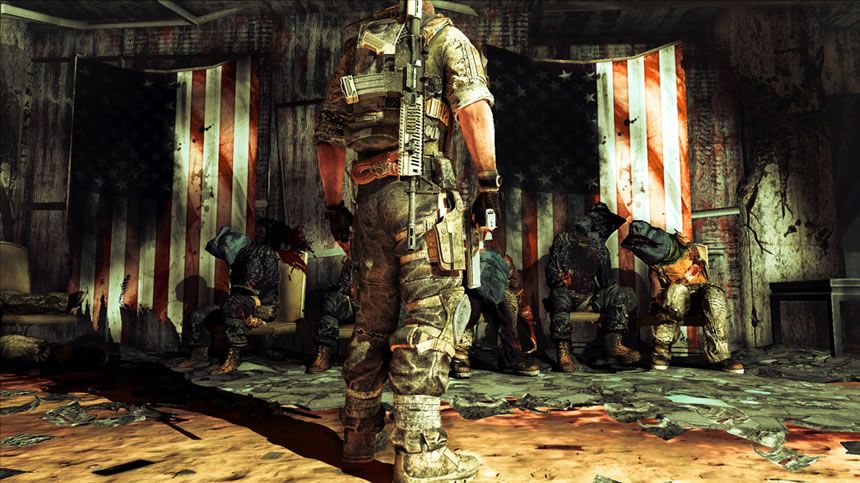

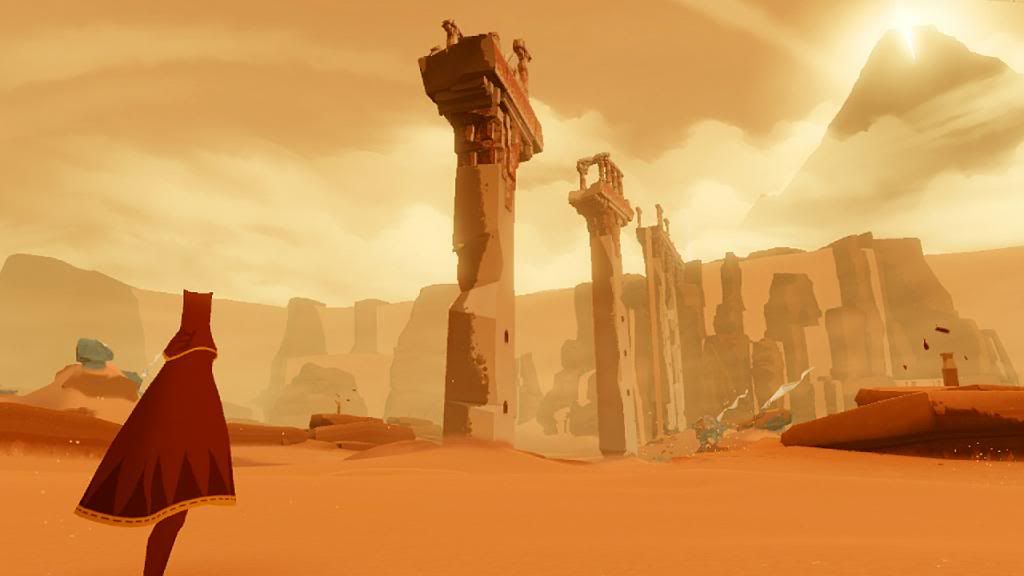

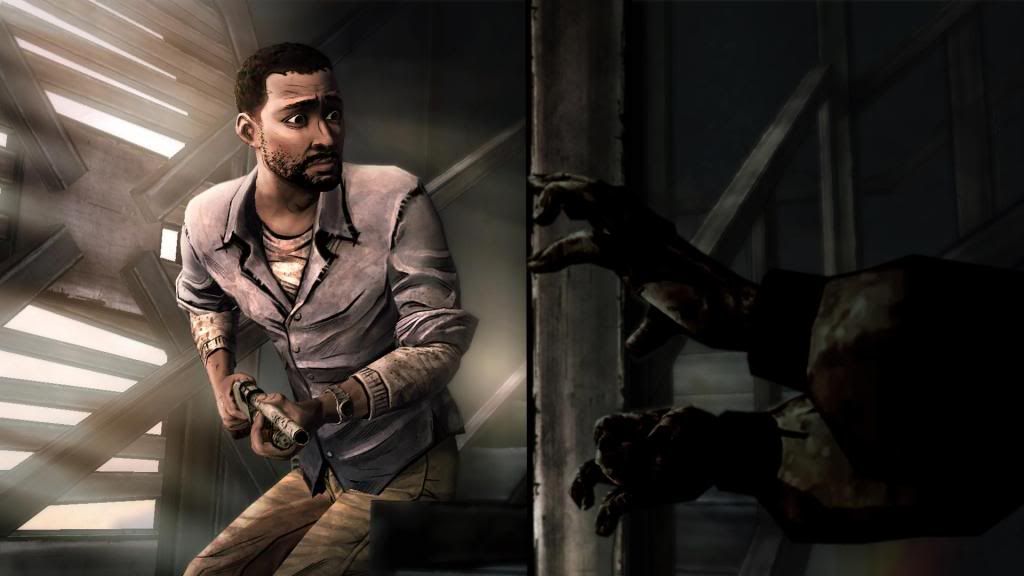
I really like using top game apps, when it has a lot of people playing with me, helping me find other players around me, when I'm playing Idle Miner Tycoon mod apk now with some friends I just met, Know from this game.
ReplyDeleteThese games have been loved for a long time, when the current game Brawl Stars Mod Apk is enjoyed by a lot of players and favorites, having one of the very new ways of playing.
ReplyDeleteThese 10 games are very good. Mod game 11 must mention the quality Monster Legends APK on CoiMobile.com
ReplyDeleteThese are good games of 2012. Most people love it. Currently in 2020, we have to mention game mods on TechCrue. You can see the good game mod like Idle Heroes Mod Apk at https://techcrue.com/idle-heroes-mod-apk.html
ReplyDelete